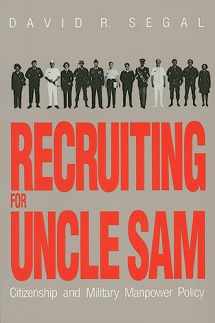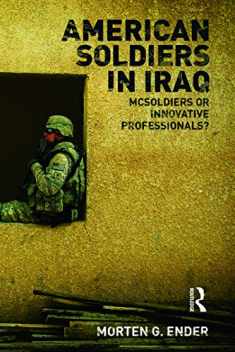
Recruiting for Uncle Sam: Citizenship and Military Manpower Policy (Modern War Studies)
Book details
Summary
Description
Which citizens have fought America's wars? Which ones should fight in the future, and how should they be recruited? Should military or other national service be an obligation for every citizen? David Segal's probing look at the complex issues behind these questions tells us much about the changing manpower needs of our armed forces and about the evolution of civil-military relations in the United States.
Segal analyzes the mobilization, contributions, and limitations of drafted, reservist, and volunteer forces from the early days of the republic to the present. In the process, he shows how Americans have come to separate the benefits of citizenship from service to their country. Symptomatic of this separation is the current reliance on an all-volunteer military, a system that treats military service more as an occupation and opportunity for self-advancement than as a civic duty and obligation.
Drawing on a vast interdisciplinary literature in American history, sociology, political science, and economics, Segal illuminates the ways demographics, weapons technology, international relations, scientific management, and social policies have all affected the composition of America's armed forces. He also shows how the military anticipated and expanded the American welfare system and played a pivotal role in creating better opportunities for minorities and women.
The capabilities and performance of U.S. armed forces in future conflicts will depend on a thorough understanding of and informed response to the crucial manpower issues Segal discusses. His thoughtful study should be required reading for military professionals and policymakers and will be of interest to anyone concerned about the future of this country's armed forces.


We would LOVE it if you could help us and other readers by reviewing the book
Book review




